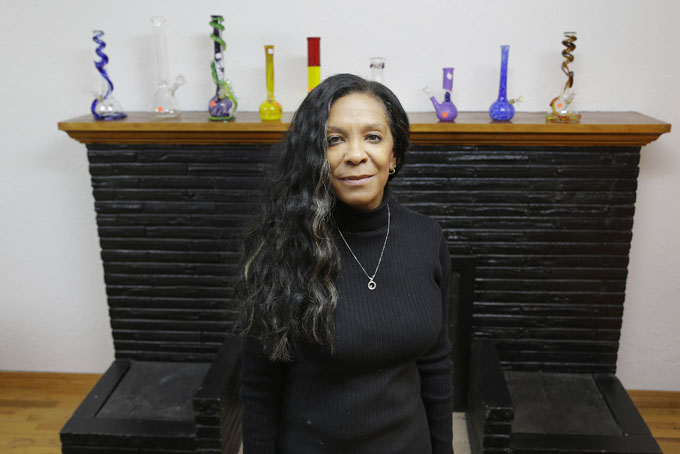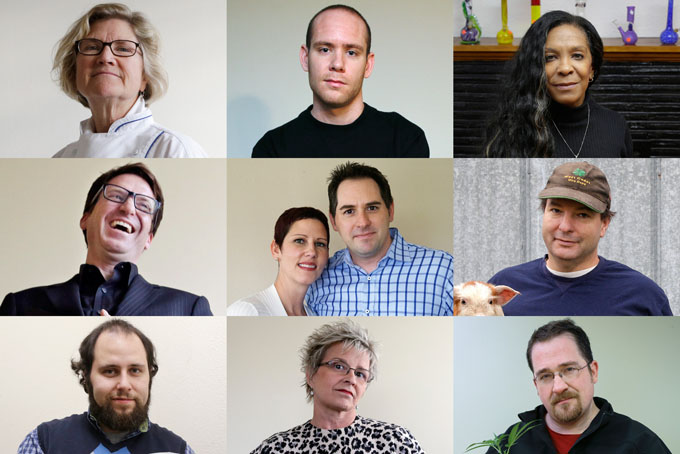
SEATTLE (AP) — Dot-bong, Marijuana Inc., the Green Rush: Call it what you will, the burgeoning legal marijuana industry in Washington state is drawing pot prospectors of all stripes.
Microsoft veterans and farmers, real estate agents and pastry chefs, former journalists and longtime pot growers alike are seeking new challenges — and fortunes — in the production, processing and sale of a drug that’s been illegal for generations.
In Colorado, the only other state to legalize marijuana, existing medical marijuana dispensaries can begin selling for recreational use in January. But in Washington, where sales are expected to begin in late spring, the industry is open to nearly anyone — provided they’ve lived in the state for three months, pass a background check and raise any money from within the state. Washington on Monday begins accepting applications from those eager to jump in.

THE POSTER CHILD FOR ANTI-CANNABIS’
Angel Swanson was raised on the South Side of Chicago by a mother who warned: “If you see drugs, run.”
Decades later, the businesswoman and real estate agent found herself in Washington state with a husband, seven children and a strong bias against illegal drugs — “the poster child for anti-cannabis,” she says.
That is, until one of her daughters, who had serious digestive issues and had never weighed more than 100 pounds, came home from college one day and ate a full plate of food. The girl had tried pot-laced cookies, which stimulated her appetite. Swanson lost it.
“Do you have any idea the sacrifices that have been made for you to go to college?” she remembers saying.
Swanson, 52, did some research and couldn’t find a reason for her daughter not to use weed. She and her husband opened a medical marijuana dispensary, The Cannabis Emporium, near Tacoma. They now want to sell recreational pot, but hope to continue to serve patients — a challenge, since stores will be barred from trumpeting pot’s therapeutic benefits.
THE PIG FARMER
Bruce King says he was a 22-year-old high-school dropout when Microsoft hired him as its 80th employee in 1986. A software engineer, he eventually left and started or acquired two other companies — telephone adult chat and psychic hotlines — but he really wanted to farm.
He found a management team to handle his business and started breeding pigs north of Seattle. After Washington legalized marijuana last fall, he looked at pot as any other crop. The potential margins were “fabulously attractive,” he says. He found a farm with a 25,000-square-foot barn for a marijuana operation.
King, 50, doesn’t like pot himself, but says, “If people are going to eat a stupid drug, they should eat my stupid drug.” He likens it to running a psychic hotline when he’s never had a reading. “You don’t have to like Brussels sprouts to grow them.”
POT & PATISSERIES
Marla Molly Poiset had swapped her three-decade-old home-furnishing store and interior design business in Colorado for a life of world travel when she learned some devastating news: Her eldest daughter had leukemia.
She suspended her travels to help her daughter and her family through the ordeal. She then continued her tour, attending cooking school in Paris. Poiset, 59, graduated last spring, and had an idea: “Blending my newfound patisserie skills with medical cannabis,” she says.
So she abandoned Paris for Seattle, where she’s been developing recipes for marijuana-infused chocolate truffles for recreational and medical use. Her aim is to create “a beautiful package” like French chocolate or pastries for people like her daughter.
They could “ingest discreetly and enjoy life, rather than everything being in a pill,” she says.
420-NINER
If legal pot is the Green Rush, Daniel Curylo has some unique credentials: He’s been an actual prospector.
He helped put himself through college working for a company that flew him into northern British Columbia and the Yukon with a map, a compass and a heavy backpack. He’d pan for gold and take soil samples. Another source of income in those days? Growing and selling marijuana with a few other political science majors.
A former techie and ex-house flipper, Curylo, 41, says his background in “business development and taking risks” is perfect for the legal pot world.
He has invested $400,000 so far. His goal? A cannabis business park northwest of Olympia that would feature his growing operation, Cascade Crops, as well as retail stores run by his mother, father and aunt.
FROM MBA TO THC
Todd Spaits and Bilye (sounds like “Billy”) Miller are more gym-and-yoga than smoke-and-cough. The couple doesn’t use pot — “I much prefer a glass of scotch,” Spaits says — but they say they know a good business opportunity when they see one.
The pair previously worked in online marketing in San Diego, and Spaits has a master’s in business administration. Their most recent startup is skyfu.com, which helps restaurants monitor what people are saying about them on social media.
Spaits, 39, also helps judge business plan competitions and believes his skills are perfectly honed to run a successful pot store.
He and Miller, 38, who has also worked as a bartender, are excited about Washington’s grand experiment. They sought advice from friends who operate medical dispensaries in California to help draw up a revenue model. They’re seeking a retail license in Kirkland, east of Seattle.